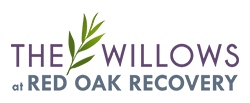Self injurious behavior, sometimes called self-harm, takes place when someone knowingly harms themselves. This self-harm often occurs multiple times over a period of weeks, months or years. People doing this don’t usually intend to end their lives. Instead, it’s a definite sign you or the person you love, need help from a quality treatment center. This is especially true when this problem couples with addiction.
According to Mental Health America (MHA), the most common self injurious behavior includes skin cutting, head banging or hitting, and burning. Between 70 and 90% of self-harming individuals cut their skin. Up to 44% bang or hit their heads and 15 to 35% burn themselves. The MHA also says most people who self-harm hurt themselves in more than one way.
Why does Self Injurious Behavior Start?
About four percent of American adults self-injure. More self injurious behavior takes place among college students, with up to 35% of young adults in college injuring themselves.
People who self-injure usually don’t understand their condition when it begins. They often report feeling empty, bored in life, unable to express themselves, lonely, misunderstood, and fearful of getting close to others. Self-injury gives them a means of coping with their painful or complicated feelings, but not with suicidal intent. People who self-injure do so for a sense of control over their body, with many of them also having an eating disorder.
If you self-injure, you seek relief from your negative feelings. You want to end problems you are having in relationships or among friends. Maybe you feel bored or need the positive emotions that hurting yourself provides.
All of these reasons cause some people who feel powerless to self-harm. But if you engage in self injurious behavior, you need help to gain the better life, personal power, and emotional stability you deserve. If you suffer self-harm along with addiction, a quality addiction treatment program helps you achieve the personal empowerment, security, support, and healing you require.
Warning Signs that Someone You Love Self-Harms
If you suspect someone you love self-harms, learn about the signs of self injurious behavior. However, knowing they cause self-injury only starts the journey to getting the help they need.
Signs of self-injurious behavior include:
- Low self-esteem
- Problems in handling feelings
- Unexplained frequent injuries like cuts and burns
- Avoidance of relationships or personal interaction
- Poor functioning and own unmet responsibilities
- Bandages, long sleeves in hot weather, or other attempts to conceal their injuries
- Odd excuses for injuries
Most people who self-harm do not intend to commit suicide, yet self-injury can become fatal. Suicide becomes a higher risk over an extended period of self-harm as the person grows more desperate in their feelings of powerlessness.
If you or your loved one self-harm, you need a licensed professional’s help. Self-injury usually points to deeper problems, such as mental illness, addiction, and other conditions. Many people who self-harm suffer bipolar disorder, a personality disorder, major depression, an anxiety disorder or psychotic disorder. Addiction and eating disorders frequently exist with self-injury.
Treatment for Addiction and Self-Injury
Remember, self-injury accompanies a wide variety of mental or substance use disorders. For your self-injury or that of your loved one, you need help from professionals experienced in these behaviors. Self-harm along with addiction requires the support of quality addiction treatment professionals with experience in dual diagnosis treatment. The Willows in Fairview, North Carolina provides this treatment for young women.
The Willows differs from other treatment centers. Treatment professionals at The Willows redefine the clinical experience through an understanding of the problems you face. During this treatment, you gain a clear understanding of your conditions and what you need for a better life.
Programs and addiction treatment services of The Willows include:
- Aftercare and alumni programs
- Dual diagnosis addiction, self-harm and eating disorder treatment
- Outdoor therapies, including hiking, rope courses, horseback riding and gardening
- Acupuncture, meditation, yoga and service work
- Trauma therapy and 25 hours of clinical therapies each week
- Relapse prevention
If you or a young woman you love need help for self-harm or other co-occurring conditions of addiction, call The Willows now at 855.773.0614.




